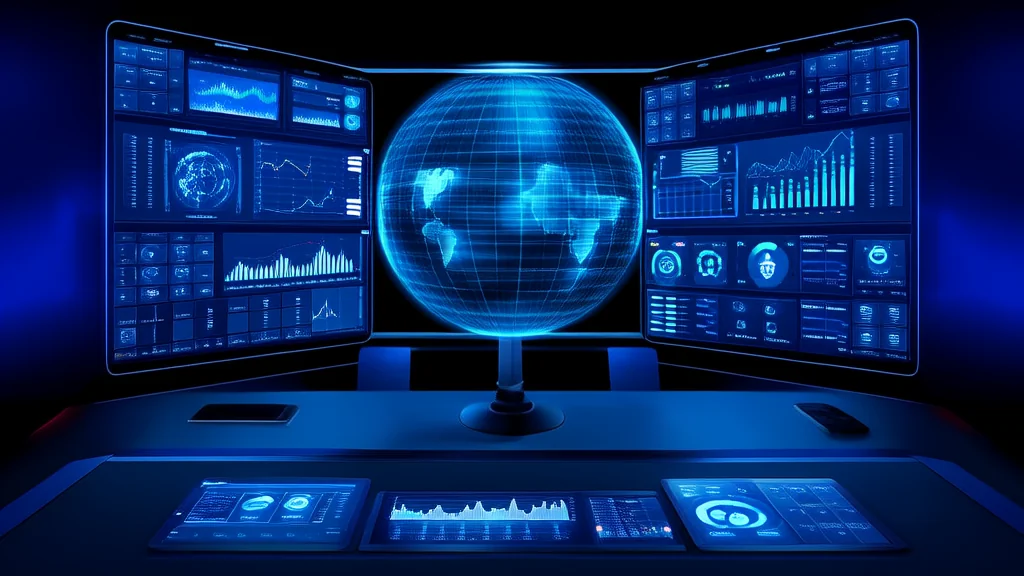AI in Action: Transforming Industries and Empowering Startups
Artificial Intelligence (AI) is no longer just a buzzword; it's a transformative force that is reshaping industries, driving innovation, and creating new opportunities. From healthcare to finance, AI is making a tangible impact on our daily lives. In this blog post, we'll explore some of the most exciting developments in AI, focusing on practical applications, real-world examples, and the future implications for both startups and big tech companies.
Revolutionizing Healthcare: AI-Driven Diagnostics and Personalized Medicine
In the healthcare sector, AI is revolutionizing diagnostics and treatment. One of the most promising applications is in medical imaging, where AI algorithms can analyze scans with unprecedented accuracy. For example, Google Health has developed an AI system that can detect breast cancer in mammograms 11.5% more accurately than human radiologists. This not only improves early detection but also reduces the number of false positives, leading to better patient outcomes and reduced healthcare costs.
Practical Impact: The use of AI in medical imaging can lead to earlier and more accurate diagnoses, which can be life-saving. It also helps in reducing the workload on radiologists, allowing them to focus on more complex cases.
Real-World Example: In a pilot study at the University of California, San Francisco, AI was used to analyze CT scans for signs of lung cancer. The system identified 90% of the cases that were later confirmed by human radiologists, demonstrating its potential to become a standard tool in clinical practice.
Future Implications: As AI continues to evolve, we can expect to see more personalized medicine, where treatments are tailored to individual patients based on their genetic makeup and medical history. This will not only improve patient outcomes but also reduce the cost of healthcare in the long run.
Empowering Startups: New Business Models and Funding Trends
The startup ecosystem is thriving, with innovative AI companies emerging and attracting significant investment. One such company is Anthropic, which recently raised $420 million in a Series C funding round. Anthropic is developing AI systems that are designed to be more transparent and aligned with human values, addressing some of the ethical concerns surrounding AI.
Practical Impact: The influx of funding into AI startups is driving innovation and enabling these companies to develop and deploy cutting-edge solutions. It also creates job opportunities and fosters a culture of entrepreneurship.
Real-World Example: Stability AI, another startup, has developed a platform that uses AI to generate high-quality images from text descriptions. This technology has applications in fields like advertising, gaming, and e-commerce, and has already been adopted by several major brands.
Future Implications: As more startups enter the AI space, we can expect to see a proliferation of new business models and applications. This will not only drive economic growth but also create new opportunities for collaboration between startups and established companies.
Big Tech's AI Push: New Products and Strategic Partnerships
Big tech companies are at the forefront of AI development, launching new products and forming strategic partnerships to stay ahead of the curve. Microsoft, for instance, has integrated AI into its Azure cloud platform, offering tools and services that enable businesses to build and deploy AI applications. Additionally, Microsoft has partnered with OpenAI to bring advanced AI capabilities to its products, including the integration of GPT-3 into its Office suite.
Practical Impact: These developments make AI more accessible to businesses of all sizes, enabling them to leverage the power of AI without needing extensive technical expertise. This democratization of AI can drive innovation and efficiency across various industries.
Real-World Example: NVIDIA, a leader in AI hardware, has partnered with several financial institutions to develop AI-powered risk management and fraud detection systems. These systems can analyze vast amounts of data in real-time, helping banks to identify and mitigate risks more effectively.
Future Implications: As big tech companies continue to invest in AI, we can expect to see more advanced and integrated AI solutions. This will not only transform the way businesses operate but also create new opportunities for collaboration and innovation.
Transforming Finance: AI-Driven Insights and Risk Management
The finance industry is one of the early adopters of AI, using it to gain deeper insights, manage risks, and enhance customer experiences. JPMorgan Chase, for example, has developed an AI system called COiN (Contract Intelligence) that can review and extract key information from legal documents in seconds. This system has reduced the time required for document review by up to 360,000 hours per year, saving the bank millions of dollars.
Practical Impact: AI in finance can significantly reduce operational costs, improve decision-making, and enhance customer satisfaction. It also helps in detecting and preventing fraudulent activities, ensuring the security of financial transactions.
Real-World Example: PayPal uses AI to monitor transactions in real-time, identifying and blocking suspicious activity. This has led to a 70% reduction in fraud losses, demonstrating the effectiveness of AI in risk management.
Future Implications: As AI continues to advance, we can expect to see more sophisticated and automated financial services. This will not only improve the efficiency of financial operations but also create new opportunities for personalized and secure financial products.
Conclusion
AI is transforming industries and empowering startups, driving innovation and creating new opportunities. From healthcare and finance to the startup ecosystem, the practical applications of AI are making a real difference in our lives. As we look to the future, the continued development and deployment of AI will undoubtedly shape the way we live and work, bringing us closer to a more efficient, personalized, and secure world.
